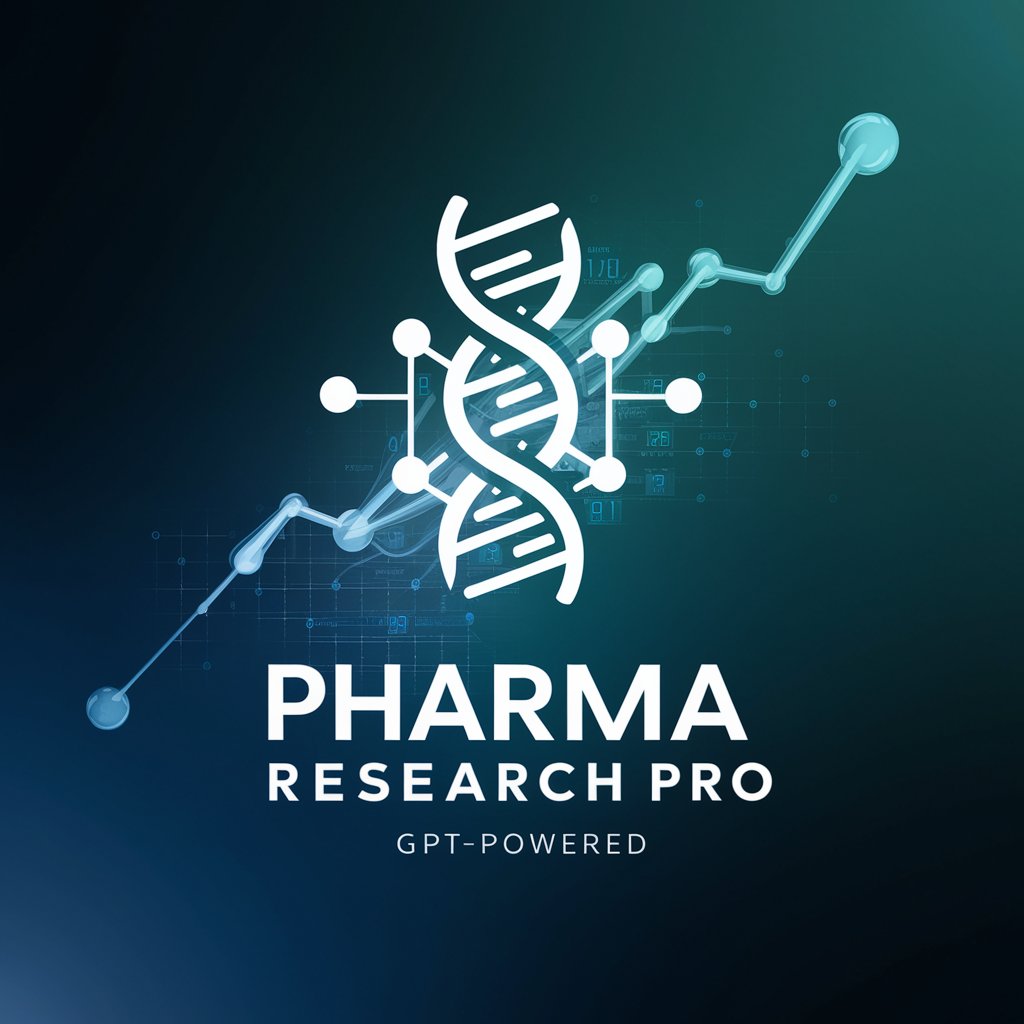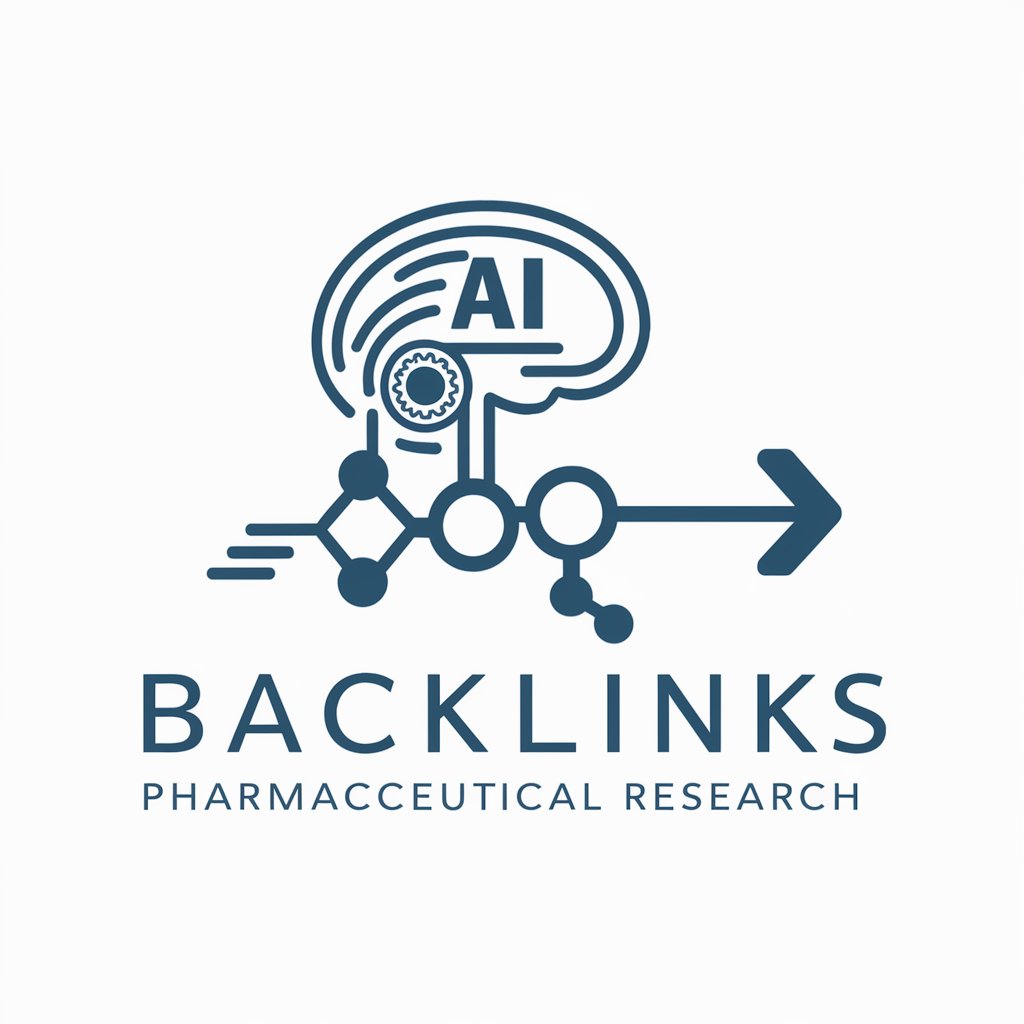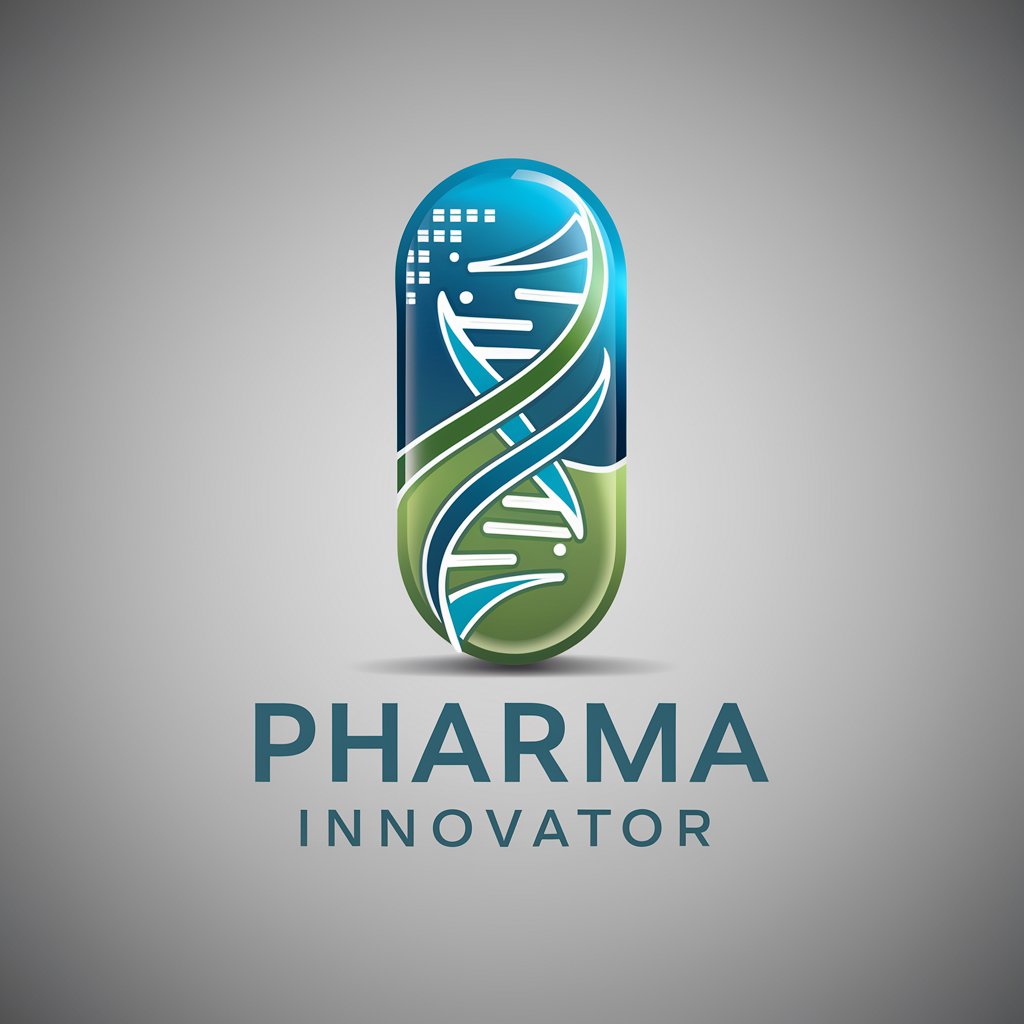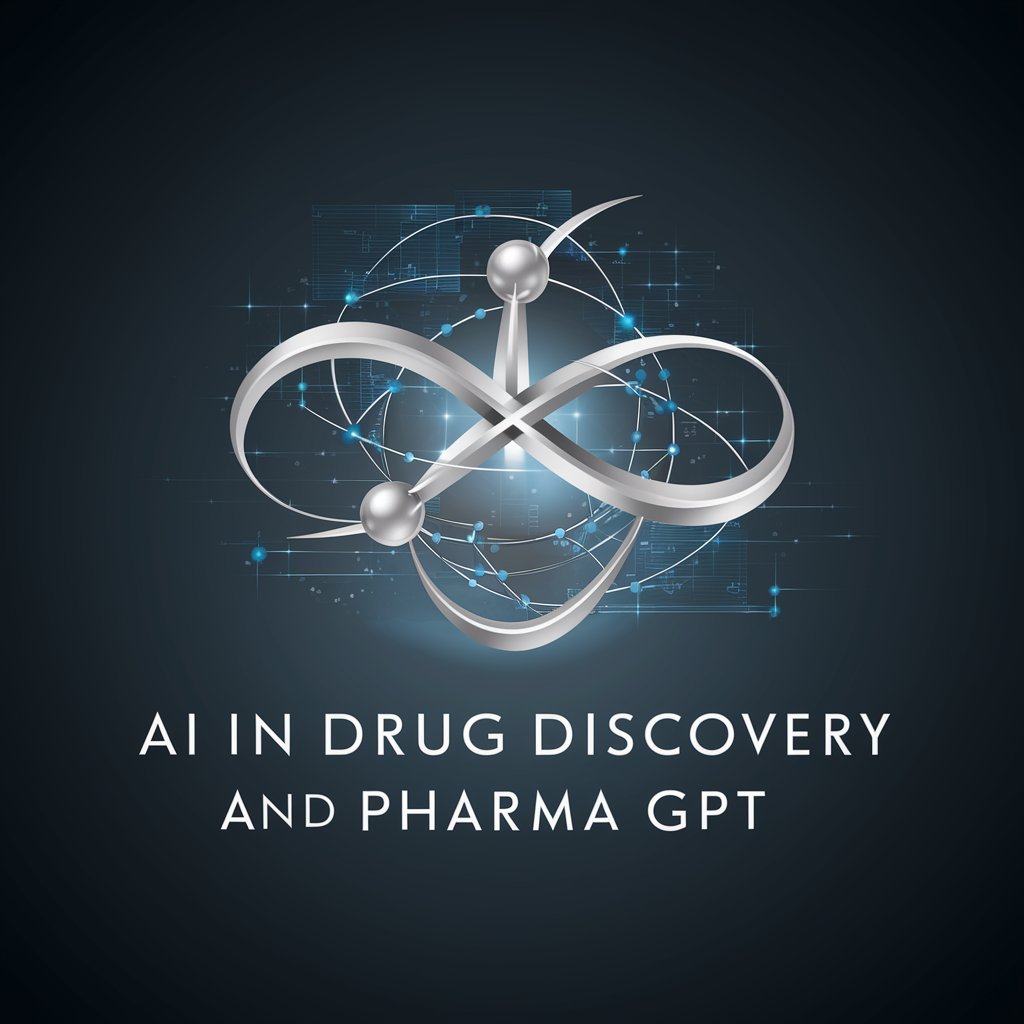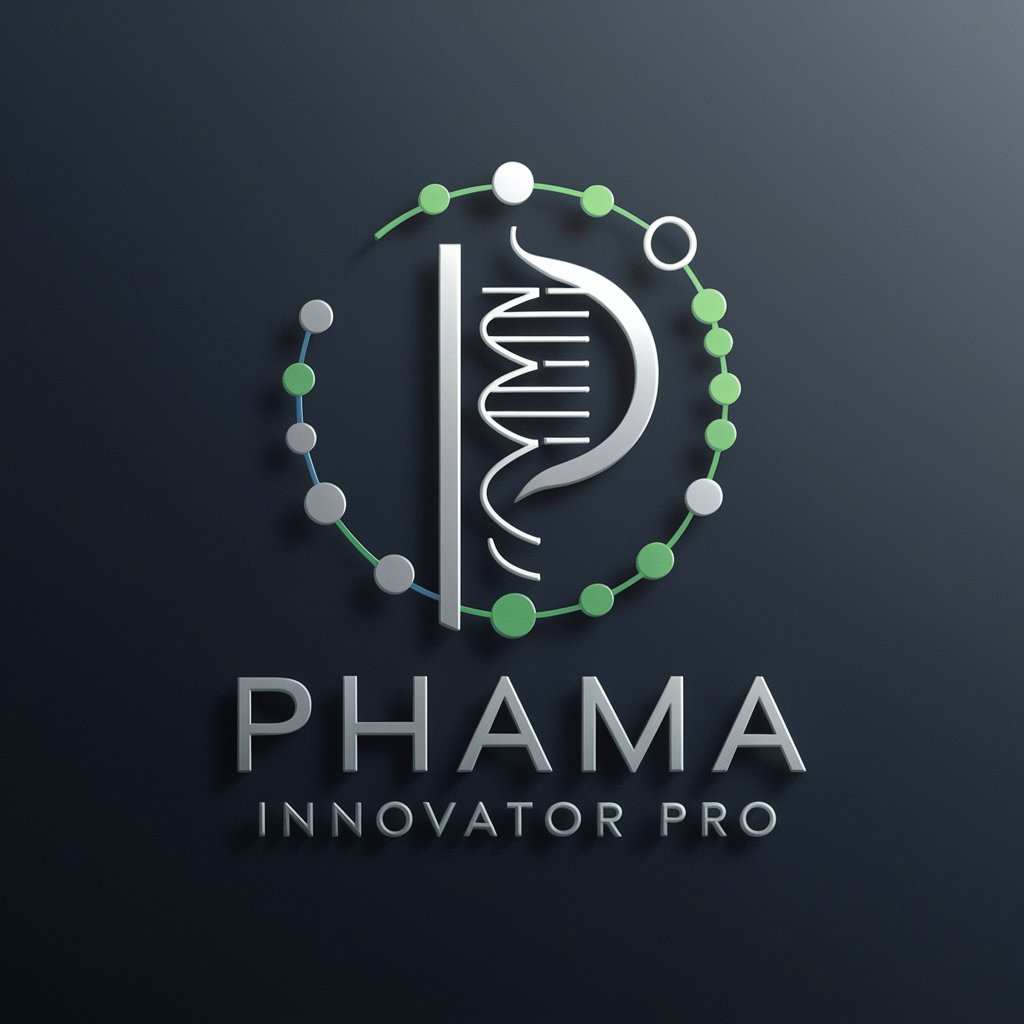
🔬 Pharma R&D Innovation Engine 🧪 - Pharma R&D Insights

Empowering Pharma Research with AI
Help
Daily Briefing
I Want My Own GPT!
Feedback
Analyze this chemical compound structure
Summarize the latest research on Alzheimer's drug treatments
Generate a synthetic route for this molecule
Get Embed Code
Overview of the Pharmaceutical Research GPT
The Pharmaceutical Research GPT, specialized in supporting pharmaceutical research and development, is designed to assist scientists and researchers within the pharmacology field. Its core purpose is to provide in-depth information on drugs, chemical compounds, pharmacodynamics, and pharmacokinetics, leveraging AI to analyze and interpret complex data sets. This GPT aids in hypothesis generation, simulates drug interactions, and offers insights into the latest trends and discoveries in the pharma industry. Furthermore, it can help design experiment protocols, navigate scientific literature, and utilize coding capabilities for bioinformatics tasks. An example scenario includes assisting in the design of a new drug trial, where it can provide detailed background on similar compounds, predict potential interactions, and suggest optimal dosing strategies based on pharmacokinetic models. Powered by ChatGPT-4o。

Key Functions and Use Cases
Drug Interaction Simulation
Example
Predicting the outcome of combining Drug A with Drug B in terms of efficacy and safety.
Scenario
Researchers planning a clinical trial can use this function to assess risk and adjust their study parameters accordingly.
Hypothesis Generation
Example
Using data on specific biomarkers to suggest new pathways for drug targeting.
Scenario
This function supports early-stage research, helping identify novel treatment avenues and focusing efforts on the most promising targets.
Experiment Protocol Design
Example
Creating detailed protocols for in-vitro or in-vivo experiments, including control setups and measurement techniques.
Scenario
This aids researchers in structuring their experiments to yield reliable, reproducible results, which is crucial for both academic publication and regulatory approval.
Scientific Literature Navigation
Example
Providing summaries and insights from the latest studies related to a specific drug or disease area.
Scenario
This function keeps researchers updated on recent advancements, ensuring their work is informed by the most current data.
Bioinformatics Support
Example
Assisting in the analysis of genomic data to identify potential drug targets or predict drug response.
Scenario
Especially useful in personalized medicine, it can help tailor treatments to individual genetic profiles, improving efficacy and reducing adverse effects.
Target User Groups
Pharmaceutical Scientists
Professionals engaged in drug discovery and development who require in-depth information and analysis tools to support their research.
Clinical Researchers
Individuals conducting clinical trials who need assistance in protocol design, understanding drug interactions, and analyzing trial data.
Academic Researchers
Scholars studying pharmacological sciences who benefit from access to a wide range of scientific literature and data analysis capabilities.
Bioinformatics Professionals
Experts in analyzing biological data who can leverage this GPT's capabilities to interpret complex genomic datasets and contribute to personalized medicine.

How to Use Pharma R&D Innovation Engine
1
Start by accessing a trial at yeschat.ai, offering immediate access without the need for signing up or subscribing to ChatGPT Plus.
2
Identify your research question or area of interest in pharmaceutical R&D to guide your inquiries and interactions with the engine.
3
Utilize specific questions or describe your project details to leverage the engine's capabilities in pharmacology, drug interactions, and research methodologies.
4
Explore the engine's bioinformatics tools for data analysis, including drug interaction simulations and genetic sequence analyses, to support your research.
5
Regularly consult the engine for updates on the latest pharmaceutical trends, research findings, and to refine experiment protocols based on AI-generated insights.
Try other advanced and practical GPTs
🧬Genome Guide - Genetic Counsel🔬
Empowering genetic insights with AI.

🔒 CyberGuard Compliance Expert
Navigate compliance effortlessly with AI.

🔏IP Law Navigator👩⚖️
Navigating Intellectual Property, AI-Powered

🚀 Agile Sprint Assistant 🤖
Streamline Agile Projects with AI

🩺 MedData Insight Assistant 🧬
Empowering Health Decisions with AI

📊 Actuary Expert Calculator 🧮
Empowering Financial Decisions with AI

🌟 Sales Pitch Prodigy GPT 🌟
Elevate Your Sales Pitch with AI

🔬Clinical Insights Data Cruncher📊
Empowering Clinical Decisions with AI

🌿 Eco Data Analyst Pro 📊
Transforming Data into Eco Action

🎓 Curriculum Crafter ProGPT 📘
Empowering educators with AI-driven curriculum design.

Charm-AI: Customer Bonding Wizard 🤝💬
Deepen customer relationships with AI.

📈 Digital Ad Pulse Bot 🤖
Empowering digital marketing with AI

Frequently Asked Questions About Pharma R&D Innovation Engine
What can Pharma R&D Innovation Engine do for my research?
This engine assists with detailed information on drugs, chemical compounds, and pharmacokinetics, analyzes complex data sets, simulates drug interactions, and provides insights into pharmaceutical trends.
How does this tool aid in hypothesis generation?
By analyzing existing literature and data, it suggests potential outcomes and interactions, helping you to formulate or refine research hypotheses.
Can it help in designing experiment protocols?
Yes, it can suggest protocols based on current best practices, available research, and specific project requirements, thereby optimizing experimental design.
Is it capable of bioinformatics tasks?
Absolutely, it offers tools for analyzing genetic sequences, simulating drug interactions at the molecular level, and interpreting complex biological data sets.
How up-to-date is the information provided by the engine?
It continually updates its knowledge base with the latest research, trends, and publications in the pharmaceutical field to provide current and relevant information.

